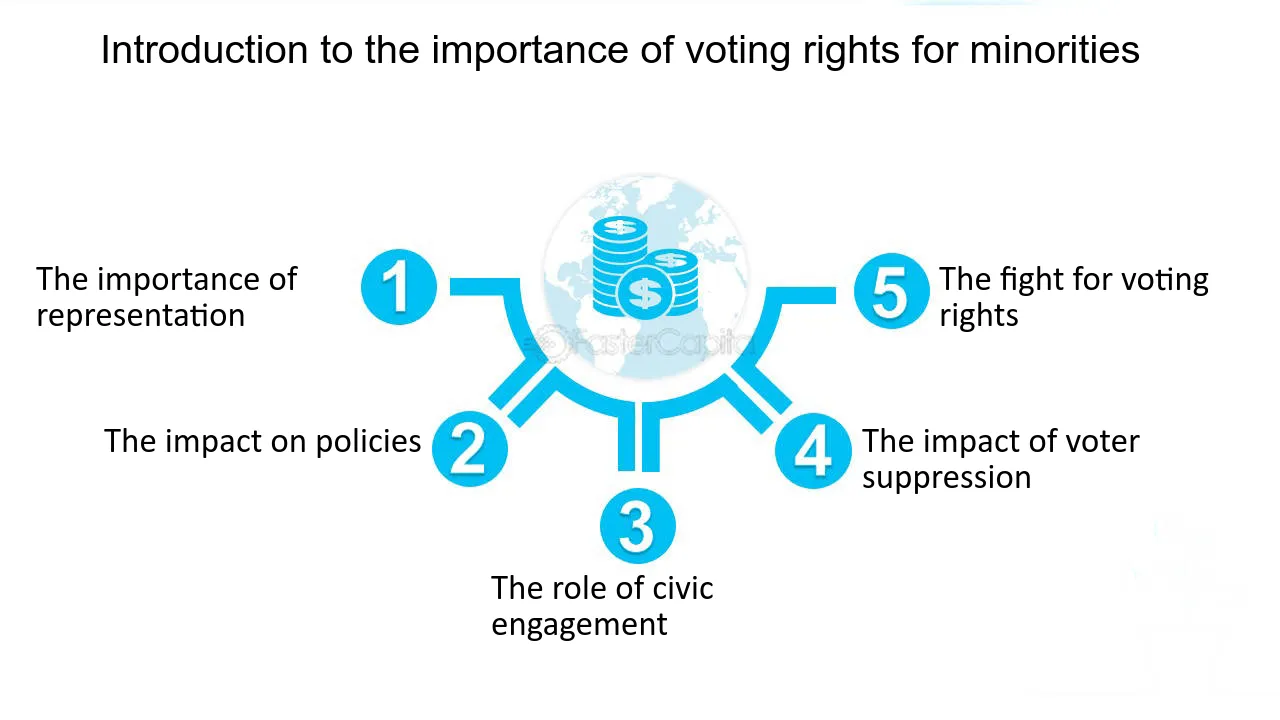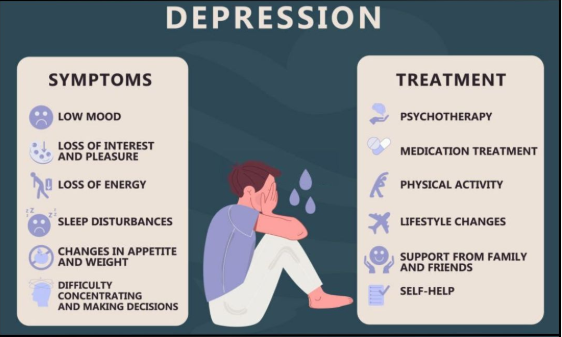GENERAL
The Essentials of Voting Laws and Their Significance

Voting laws play a crucial role in ensuring fair and accessible elections. They govern who can vote, how votes are cast, and the process of counting and verifying results. These laws also protect voter rights and prevent fraud. Understanding the significance of voting regulations helps citizens exercise their rights responsibly, contributing to a more transparent and inclusive democratic process.
Introduction to Voting Laws
Voting laws form the foundation of democratic systems, playing a critical role in dictating the rules for elections, who can vote, and how votes are counted. These laws are designed to ensure fair elections and uphold the integrity of the electoral process. For every citizen, a thorough understanding of these voting laws is essential. They govern much of the election landscape and influence civic engagement and participation. As societies strive for progress, it’s vital to ensure these laws evolve to meet current and future challenges while safeguarding fundamental democratic principles.
Historical Context of Voting Laws
The journey of voting laws is a testament to society’s evolution towards equality and fairness. Initially, many democracies imposed stringent restrictions on voting rights, often based on race, gender, and socioeconomic status. These barriers reflected broader societal inequalities and were used to maintain power structures. However, as societal values shifted and movements advocating for equal rights gained momentum, legislative reforms followed. Landmark events, such as the passage of the Voting Rights Act of 1965 in the United States, marked significant progress in dismantling discriminatory practices, ensuring voting became a right accessible to a broader spectrum of people. This historical evolution underscores the ongoing pursuit of equality and universal enfranchisement.
Common Elements of Voting Laws
Despite variations across states and regions, voting laws share several core components crucial for the electoral process’s integrity.
Voter Registration
Voter registration is a universal requirement to verify a person’s voting eligibility. This process involves confirming identity and residency and ensuring an accurate and updated voter roll. By maintaining a reliable record of registered voters, electoral bodies can prevent fraud and ensure that each vote cast is legitimate. Understanding the nuances of voter registration, including deadlines and documentation needed, is essential for citizens aiming to participate in elections.
Voter Identification
Voter identification laws uphold election security. While some jurisdictions impose strict ID requirements to bolster security, others opt for more lenient measures to avoid disenfranchising groups that are less likely to possess government-issued IDs. The challenge lies in balancing these needs—ensuring that security enhancements do not come at the expense of accessibility, particularly for marginalized communities. This ongoing debate highlights the complexity of crafting equitable voting laws that respect security concerns and the right to vote.
Why Voting Laws Matter
The significance of voting laws cannot be overstated, as they essentially form the pillars of democracy. By enforcing transparent and fair rules, these laws protect against electoral fraud and manipulation, ensuring that every vote counts and that election outcomes genuinely reflect the people’s will. Beyond procedural fairness, voting laws also underscore the importance of equal representation, facilitating a political environment where every citizen’s voice can be heard. In maintaining public trust, these laws help bolster citizen confidence in the democratic process, a vital component for societal stability and cohesion.
Challenges and Criticisms
Despite their importance, voting laws are often at the center of controversies and challenges. Critics argue that specific laws can suppress voter turnout, especially within underrepresented and marginalized communities. Stringent voter ID laws, for instance, have been criticized for disproportionately affecting low-income populations, minorities, and older people—groups less likely to have access to the necessary documentation. Challenges also arise concerning accessibility in remote and rural areas where transportation and infrastructure pose significant hurdles. Debates regarding voting law modifications in different states emphasize the importance of finding a careful equilibrium while creating legislation ensuring safety and inclusivity.
Recent Changes in Voting Laws
Voting laws have recently undergone numerous changes, reflecting technological advancements, security concerns, and evolving societal expectations. The global pandemic catalyzed a shift towards mail-in voting, prompting procedural adaptations to accommodate this growing trend. Consequently, many states extended early voting periods to reduce congestion and potential health risks on election day.
- Mail-in voting adaptations aimed to streamline the process, ensuring timely and secure vote counting.
- Longer early voting periods allow for greater flexibility, enabling more citizens to cast their votes conveniently.
- However, some jurisdictions have also tightened ID requirements, prompting debates about the fine line between preventing fraud and preserving voter access.
How Voters Can Stay Informed
Staying informed is a civic responsibility in the face of ongoing changes to voting laws. Voters can benefit from engaging with educational initiatives and leveraging reliable resources such as state election websites to gather accurate, up-to-date information. Understanding current voting laws enables citizens to navigate elections effectively and encourages more excellent voter turnout. Moreover, by participating in civic education programs and community discussions, individuals can demystify the voting process, empowering themselves and others to fulfill their democratic duties confidently.
The Future of Voting Laws
As we look forward, the future trajectory of voting laws will be shaped by technological innovations, societal shifts, and emerging security concerns. Policymakers must remain vigilant, continuously reviewing and updating these laws to reflect changing demographics and advancements in election technology. For instance, addressing potential cyber threats and integrating secure, accessible voting methods will be paramount to maintaining robust democratic practices. Ultimately, evolving voting laws must strive to enhance accessibility and security, ensuring they facilitate fair and equitable participation across diverse populations without compromising the foundational principles of democracy.
GENERAL
Green Landfill Transformation Driven By Methane Sensing

Under the global trend towards carbon neutrality, as an important part of urban solid waste treatment, landfills have become a key link in the issue of environmental sustainable development. Methane is not only a gas with a strong greenhouse effect, but its leakage also poses an explosion hazard, posing a serious threat to air quality and ecosystems. Through high-precision methane monitoring technology, landfills can achieve a transition from traditional passive governance to active control and green transformation, thereby promoting resource recycling and coordinated control of environmental risks.
- The Basic Role Of Methane Monitoring Technology In Landfills
The operation of modern landfills is increasingly dependent on methane monitoring. Especially before and after the closure of the site, the decomposition process of underground organic matter will continue to produce methane gas, so a long-term, stable and accurate monitoring system is needed to support it. The current mainstream methane detection equipment mostly uses infrared absorption spectroscopy technology, combined with multi-point sampling and real-time data transmission functions, which not only has high sensitivity, but also can adapt to a variety of complex environments.
Taking the portable methane detector as an example, it has a lightweight design and is suitable for various unmanned platforms, such as multi-rotor drones, ground robots or shoulder-back operation methods. At the data level, this type of equipment supports data output in seconds, and can upload the detection data to the cloud platform in real time through wireless transmission technology, and combine with the GIS system for spatial mapping to provide a comprehensive methane concentration distribution map for the landfill. This highly integrated detection method not only improves the inspection efficiency, but also greatly reduces the operational risk of personnel entering high-risk areas.
- Technology Integration Promotes Resource Utilization
Methane resource utilization is an important starting point for the green transformation of landfills. On the one hand, through the methane capture and purification system, the recovered gas can be used as power generation fuel or heating energy to achieve a win-win situation of economic value and environmental value. On the other hand, the efficient use of methane requires accurate emission monitoring as a prerequisite.
By deploying fixed methane monitoring nodes and linking them with movable equipment, landfills can achieve three-dimensional modeling of gas generation and escape paths at different depths and in different areas. Combined with the simulation of methane gas production rate and biological reactivity analysis, it is helpful to optimize the design of the cover material and gas drainage system of the landfill operation layer. Especially in the transition stage before and after the closure, the methane detection data can also reversely correct the operation and maintenance parameters of the bioreactor landfill mode, thereby improving the energy efficiency and operational safety of the resource system.
- Support Sustainable Management And Policy Implementation
High-quality methane monitoring data also plays an important role in policy formulation and regulatory implementation. As European and American countries have successively introduced methane emission reduction policies for landfills, such as the US New Source Performance Standard (NSPS) and the EU Waste Landfill Directive, data compliance and traceability have become new challenges that landfills must face.
The built-in time synchronization function and data encryption module of the methane detector can meet the requirements of environmental regulatory agencies for the integrity of the integrated “source-time-value” data. At the same time, combined with historical data modeling, landfills can also regularly publish environmental emission reports and accept audits by third-party agencies, thereby obtaining more policy support and market access opportunities in environmental credit assessments.
- Case Inspiration: Stockholm Biolandfill, Sweden
A large bioreactor landfill in southern Stockholm, Sweden, uses an automated methane monitoring system, deploys more than 150 sensor nodes in the landfill operation area, and combines regular drone aerial inspections to achieve digital management of methane emissions throughout the life cycle. At the beginning of the system’s use, a small leak was found in an old pipe joint, and possible explosion risks and air pollution were avoided through precise positioning.
More importantly, the methane recovered from the landfill is used for natural gas supply for urban public transportation, with an annual energy output of about 50 million kWh, equivalent to a reduction of more than 20,000 tons of carbon emissions. The project was led by the municipal government and jointly developed by a number of scientific research institutions, demonstrating the practical feasibility and multi-party synergy of methane detection technology in promoting sustainable development of the urban environment.
- Future Outlook: Intelligent Methane Monitoring System
With the development of the Internet of Things and artificial intelligence, methane monitoring in landfills is also evolving in a more intelligent and networked direction. Through deep learning models, abnormal gas fluctuations can be automatically identified and leakage trends can be analyzed in combination with meteorological conditions to achieve prediction-based operation and maintenance response. In addition, the “air-ground integration” system that integrates drone thermal infrared imaging and laser telemetry technology will further enhance the coverage of large areas of complex terrain and promote the transformation of landfills from static monitoring to dynamic early warning.
At the same time, the new generation of detection instruments has made continuous breakthroughs in power endurance, data compression, edge computing, etc., so that they can still maintain efficient and stable operation during the long-term closure stage. This is of great significance to the “post-life cycle management” of landfills and is a key step in achieving a true “green closed loop”.
GENERAL
Finding Balance: Simple Steps to Manage Depression Symptoms

Key Takeaways:
- Discover practical strategies to manage symptoms of depression in daily life.
- Learn how lifestyle changes and minor adjustments can positively impact mental health.
- Explore additional resources and expert advice to support mental well-being.
Introduction to Managing Depression Symptoms
Living with depression can seem like a constant uphill battle, but it’s essential to recognize that minor daily adjustments can significantly impact your well-being. While professional treatments for depression are vital for many, these can be complemented by personal efforts and lifestyle changes. Understanding how these changes manifest in your day-to-day life empowers you and provides a sense of control over an all-consuming condition.
Understanding the Influence of Lifestyle Choices
Lifestyle decisions are vital in handling depression, impacting mental and physical well-being. Minor changes such as sticking to a regular sleep routine, consuming a nutritious diet, and incorporating consistent exercise can significantly influence mood and energy. For some individuals, additional treatments like spravato nasal spray may also play a vital role in managing symptoms, offering a complementary option alongside lifestyle changes. It’s easy to overlook how everyday habits contribute to emotional states, but recognizing this connection is a decisive first step toward improvement. Living mindfully and aligning daily habits with mental health goals can pave the way for long-term well-being.
The Power of Routine in Depression Management
Setting a predictable daily routine is an effective strategy for combating the symptoms of depression. A well-organized routine offers stability and regularity, lessening the unpredictability that can worsen symptoms. This doesn’t mean every minute must be planned, but having a consistent pattern—such as waking up and going to bed simultaneously, allocating time for self-care, and scheduling regular breaks—creates stability that can help ease anxiety and nurture a peaceful mind. It’s about finding a rhythm that suits you and sticking to it as much as possible. Incorporating small but significant practices, like establishing a routine, can also be complemented by other approaches, such as seeking professional help or finding activities that promote overall well-being. Healthline, for instance, highlights how exercise, mindfulness, and staying connected with loved ones can significantly help fight depression. Remember that mental well-being is as important as physical health, and small changes can dramatically influence it. Finding balance in your daily activities can also provide a sense of control and stability, which can be comforting during tough times. Ultimately, the key is to be patient with yourself and understand that healing is a process.
Incorporating Physical Activity
Physical exercise is widely acknowledged as a potent mood enhancer. Regular physical activity—brisk walking, cycling, or yoga—benefits physical health and mental wellness. This occurs because of the release of endorphins, brain chemicals that serve as natural mood enhancers. According to research on the benefits of exercise, even moderate physical activity can yield substantial benefits in mood regulation, helping to alleviate some symptoms of depression. The essential part is discovering an activity you love, making it a lasting aspect of your lifestyle.
Nutrition’s Role in Mental Health
Nutrition is essential for mental health, influencing our feelings and how we function. Diets rich in vegetables, fruits, lean proteins, and whole grains have consistently been linked to fewer symptoms of depression. Nutrients like omega-3 fatty acids present in fish and antioxidants abundant in different berries enhance brain health and boost mood. It’s not merely about avoiding junk food but embracing a diet that supports the complex systems in your body that contribute to well-being. Practicing mindful eating and selecting nutritious foods for your body can be crucial in coping with depression.
Cultivating a Support Network
A supportive community can be a key asset in managing depression. Friends and family provide emotional support and companionship, while professional groups or online communities offer understanding and shared experiences. These networks can provide a valuable outlet for expression and connection, reducing feelings of isolation. Developing and leaning on a reliable support system can fortify your capacity to cope with depression, offering reassurance and a buffer against stress.
Techniques for Mindfulness and Relaxation
Mindfulness techniques, including meditation, deep breathing, and guided visualization, promote a present-centered attitude that separates from the continual noise of a restless mind. These techniques can reduce stress and aid in relaxation, offering a mental respite that is particularly beneficial for individuals experiencing depression. The growing relevance of mindfulness practices demonstrates their effectiveness and broad applicability in enhancing mental health. Finding time in the day to practice mindfulness, even for a few minutes, can contribute significantly to emotional stability.
When Professional Help Is Needed
Sometimes, despite best efforts, professional intervention becomes necessary. Understanding when to seek help is crucial in effectively monitoring and managing the condition. Therapy, medications, or a combination of treatments provide substantial relief for many individuals, addressing underlying causes and helping navigate the complexities of depression. Recognizing the importance of professional help and integrating it into your mental health strategy empowers individuals to pursue the most informed and effective pathway to recovery.
GENERAL
Making Home Buying Easy: Tips for First-Timers

Table of Contents:
- Introduction to Home Buying
- Understanding Your Budget
- Deciding on Home Features
- Navigating Mortgage Options
- The Importance of Location
- Working with a Real Estate Agent
- Home Inspection and Appraisal
- Sealing the Deal: Closing the Sale
Introduction to Home Buying
Embarking on buying your first home is a thrilling yet daunting experience. The process involves navigating many mortgage options, selecting the perfect location, and establishing a practical budget. These steps can seem overwhelming, particularly for first-time homebuyers, but with the proper guidance, each challenge can be surmounted easily. When considering various locations, options like the Wellington FL Homes for Sale offer an array of choices that align with diverse lifestyle needs, setting an excellent starting point for your search. The options available in such vibrant communities offer potential and a chance to carve out a comfortable future.
Understanding Your Budget
Creating a realistic budget is one of the first and most essential tasks in the home-buying process. To determine your purchasing power, start by carefully evaluating your financial status. This involves evaluating monthly income against potential mortgage payments, property taxes, insurance, and future maintenance costs. Ensuring these costs don’t exceed 28-30% of your gross income is essential. Helpful tools like a mortgage affordability calculator can provide valuable insights tailored to your financial circumstances, allowing you to make informed decisions. This financial clarity is crucial to avoid future financial strain and enable you to negotiate from a place of strength.
Deciding on Home Features
The quest for the perfect home often begins with a wish list. Distilling your list into essential must-have features is vital. Consider the number of bedrooms, kitchen size, yard space, and necessary facilities like home offices or playrooms. It can categorize these into ‘needs’ and ‘wants’ to help focus your search. While it’s easy to be swayed by luxury features, ensuring that the essentials are met first is key. Keeping an open mind to certain compromises is beneficial without sacrificing the core features that make your house functional and comfortable for your lifestyle. Flexibility in what you can forgo makes your journey more efficient, saving time and money, which is pivotal in competitive markets.
Navigating Mortgage Options
Understanding the various mortgage options can dramatically affect your financial health and home ownership experience. The two principal types of mortgages that most buyers consider are fixed-rate and variable-rate. Fixed-rate mortgages offer the advantage of predictable monthly payments over the life of the loan, while variable rates might initially offer lower costs but can fluctuate, impacting your budget. Recent mortgage trends have shifted towards innovative structures catering to various financial needs. To choose the best solution for your circumstances, it is crucial to match your decision with your financial goals and risk tolerance, perhaps with guidance from a financial counselor.
The Importance of Location
With good reason, location is frequently cited as one of the most critical aspects of real estate. When choosing where to buy, assess the neighborhood’s amenities, future development plans, public transportation options, and school districts, if applicable. A desirable location enhances your daily living experience through convenience and lifestyle amenities and can positively impact the home’s long-term value and potential resale options. For those commuting, proximity to major transit routes can be beneficial, while families might prioritize areas with reputable schools and parks. The choice of location is an investment in your future lifestyle and should reflect current needs and aspirations.
Working with a Real Estate Agent
Choosing the top real estate agent simplifies the buying procedure. An experienced agent brings invaluable market knowledge and negotiation skills, guiding you through viewing properties to finalizing purchase details. Key traits include reliability, communication skills, and a deep understanding of the local market. Your agent should act as a trusted advisor, taking the time to understand your unique requirements and showing properties that closely match your criteria. Their experience can not only streamline your search but also aid in navigating legal and financial paperwork, ensuring that you stay informed at each step of the journey.
Home Inspection and Appraisal
Before closing the deal on any home, conducting a thorough home inspection and appraisal is critical. A home inspection might identify hidden problems like old systems, structural damage, or safety dangers that, if left unchecked, could result in high expenses. Armed with this information, you can negotiate necessary repairs or adjustments to the price. Meanwhile, an appraisal conducted by a qualified professional ensures that the property’s market value aligns with the sale price, protecting your financial investment. These steps are integral to securing peace of mind and ensuring that your new home is a wise investment.
Sealing the Deal: Closing the Sale
Your home-buying experience ends with the closing procedure, where all financial transactions and legal paperwork are completed. It’s essential to review each document meticulously to ensure accuracy and completeness. Clear communication with all parties, including lenders, agents, and legal professionals, can prevent last-minute surprises. The property is yours once everything is in order and all parties have signed the necessary paperwork. This celebratory moment represents the culmination of your hard work and planning, welcoming you into the next chapter of homeownership and offering an exciting horizon filled with possibilities.
-

 GENERAL1 year ago
GENERAL1 year agoDiscovering the Artistic Brilliance of Derpixon: A Deep Dive into their Animation and Illustration
-

 Posts1 year ago
Posts1 year agoSiegel, Cooper & Co.
-

 Lifestyle1 year ago
Lifestyle1 year agoPurenudism.com: Unveiling the Beauty of Naturist Lifestyle
-

 Lifestyle1 year ago
Lifestyle1 year agoBaddieHub: Unleashing Confidence and Style in the Ultimate Gathering Spot for the Baddie Lifestyle
-

 HEALTH1 year ago
HEALTH1 year agoTransformative Health Solutions: Unveiling the Breakthroughs of 10x Health
-

 Entertainment1 year ago
Entertainment1 year agoGeekzilla Podcast: Navigating the World of Pop Culture, Gaming, and Tech
-

 Entertainment1 year ago
Entertainment1 year agoKhatrimaza Unveiled: Exploring Cinematic Marvels and Entertainment Extravaganza
-

 BUSINESS1 year ago
BUSINESS1 year agoUnlocking the Secrets to Jacqueline Tortorice Remarkable Career and Accomplishments
